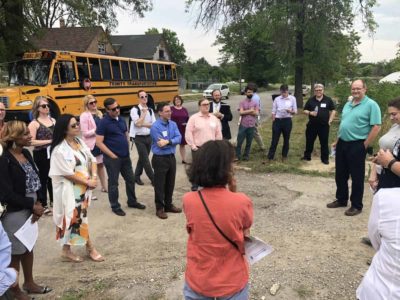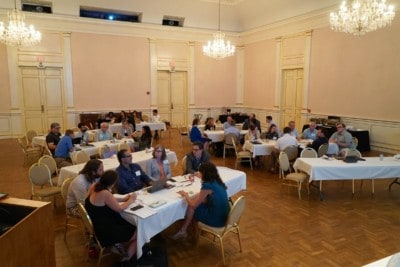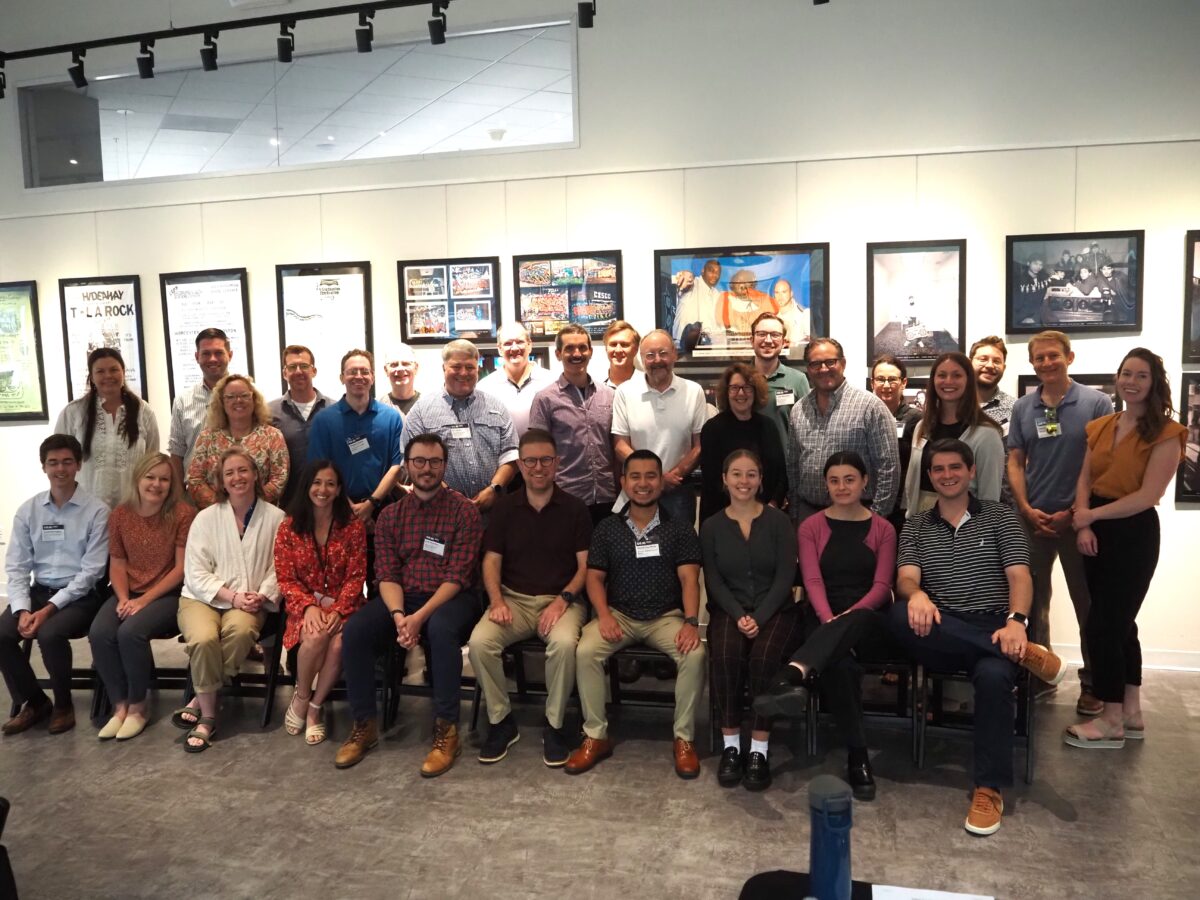
|
|
At the end of July, the Worcester Regional Research Bureau (WRRB) hosted the nation’s top governmental researchers at the annual conference for the Governmental Research Association (GRA).
Since 1914, the GRA has been connecting researchers from across the country working to improve their communities, according to their website.
Just what is a GRA organization? Widely thought of as independent think tanks, back in the early days they were described as agencies of “alert citizenship,” conducting research on issues of “vital interest,” servants not only to the government entities they research, but to the residents of those places.
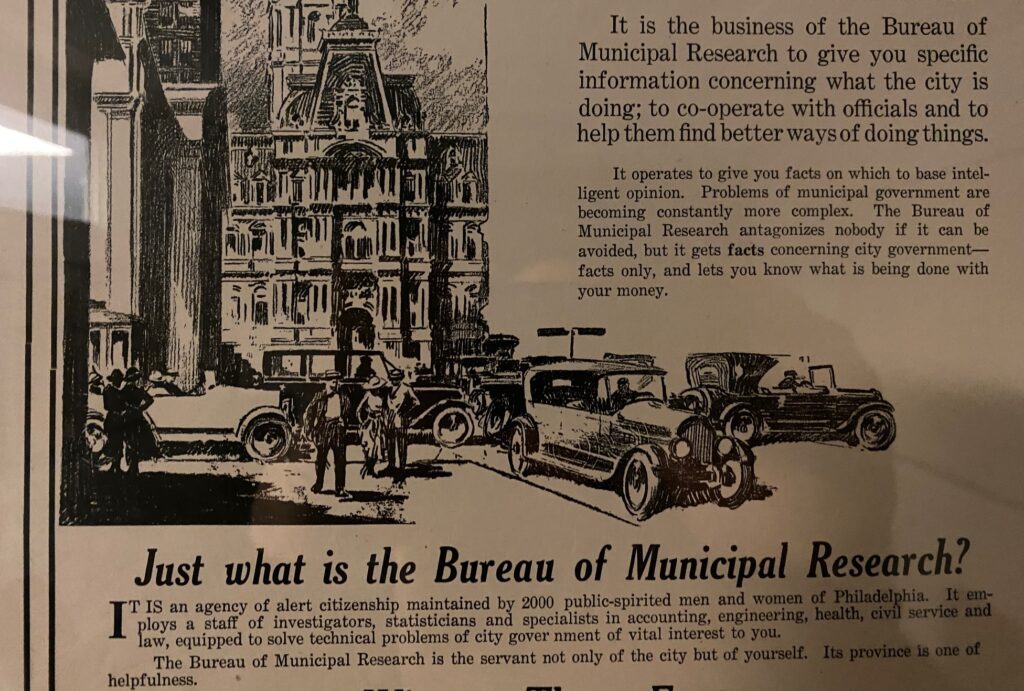
At the conference, researchers explored the challenges and opportunities confronting government on the most pressing issues facing our communities in the 21st century, including housing, transit, education, public workforce shortages, and federal financial relief.

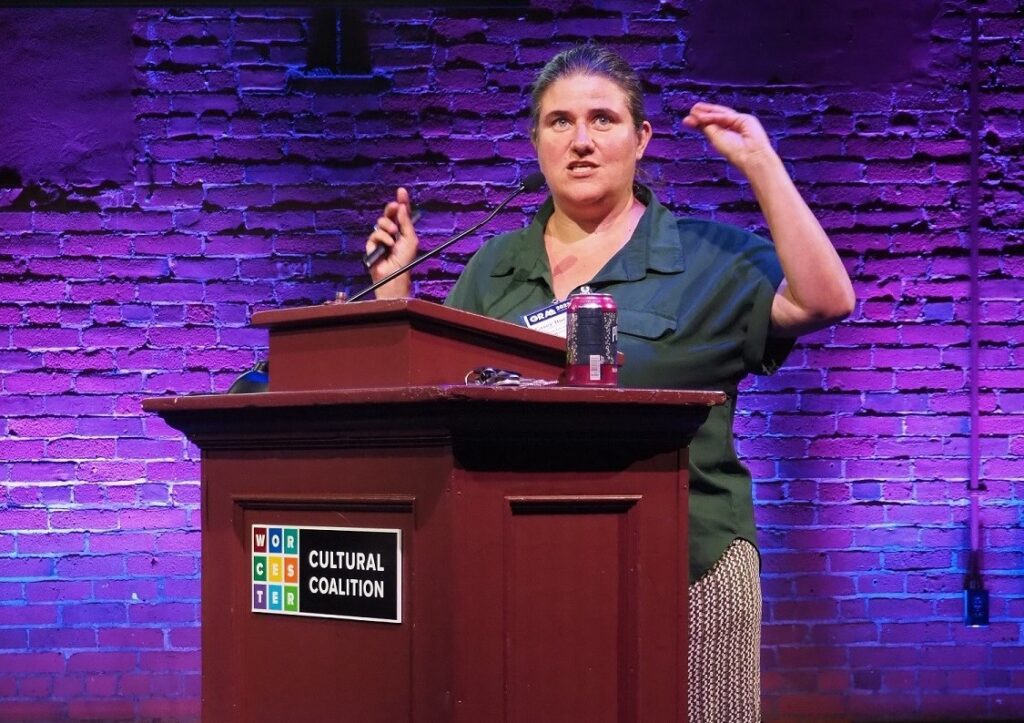
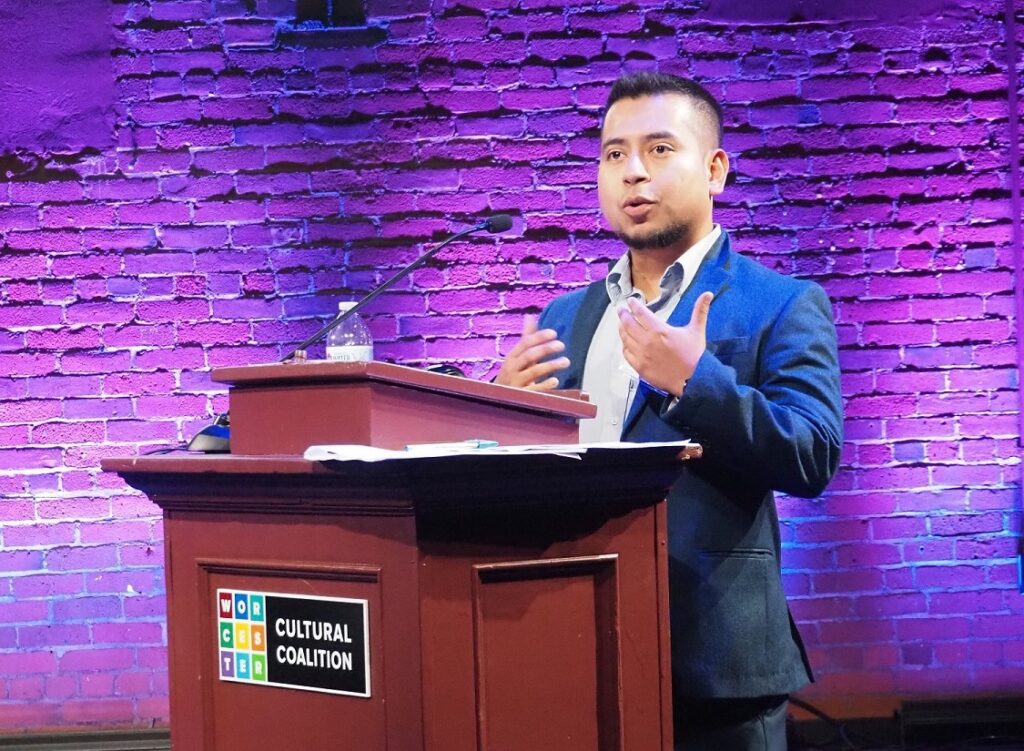
Worcester is the smallest community served by a GRA member, with peer organizations serving cities like Philadelphia, New Orleans, Boston, and Chicago. It was the perfect place to study how cities are changing in the modern economy.
“Visiting Worcester for the 2023 GRA conference has been an amazing experience.
– Shawn Teigen, chair of the GRA and president of the Utah Foundation
The city is interesting, beautiful, and jam-packed with friendly people.”
Connecting practice to policy on the ground in Worcester
A tour on the school district’s newly acquired buses provided attendees the opportunity to understand Worcester’s evolution since 1990.

Narrated by the city’s Chief Development Officer Peter Dunn, the tour included notable redevelopment successes, with visits to the Polar Park, the Reactory, and the Worcester Memorial Auditorium.
A look at these projects and a panel discussion with Ché Anderson of UMass Chan Medical School; former Massachusetts Senate President Emerita Harriette Chandler, Tim McGourthy, Chief Financial Officer of the City of Worcester; and Tim Murray, president and CEO of the Worcester Regional Chamber of Commerce demonstrated the importance of public-private collaboration and coordinated advocacy for state and federal funding.
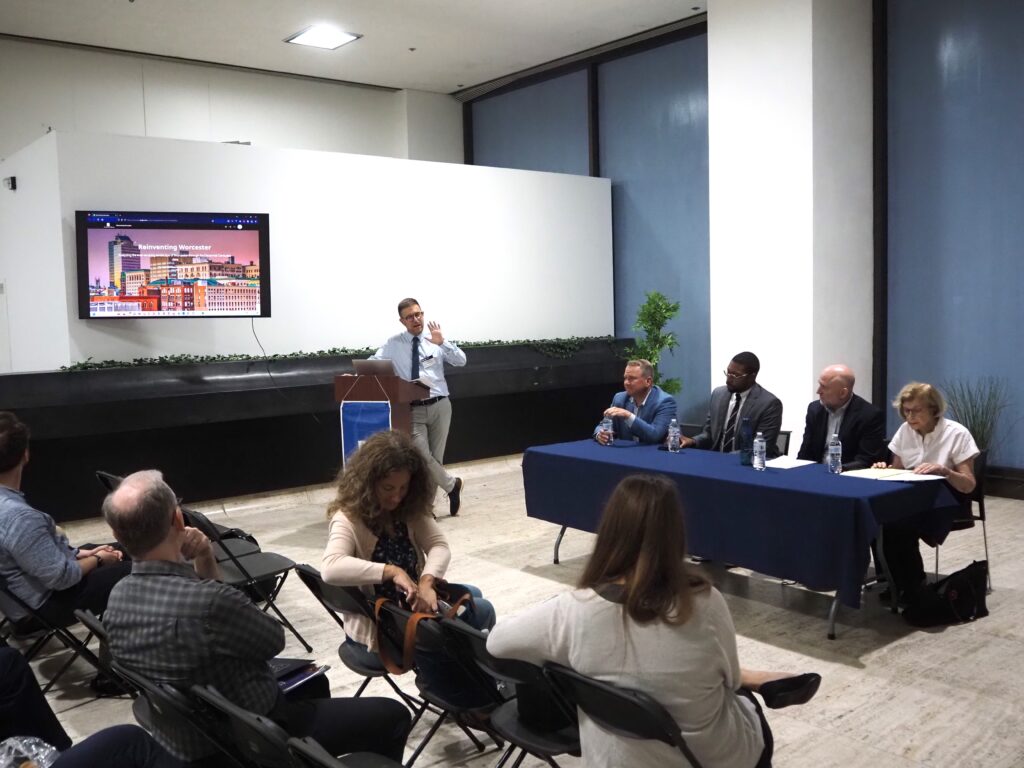
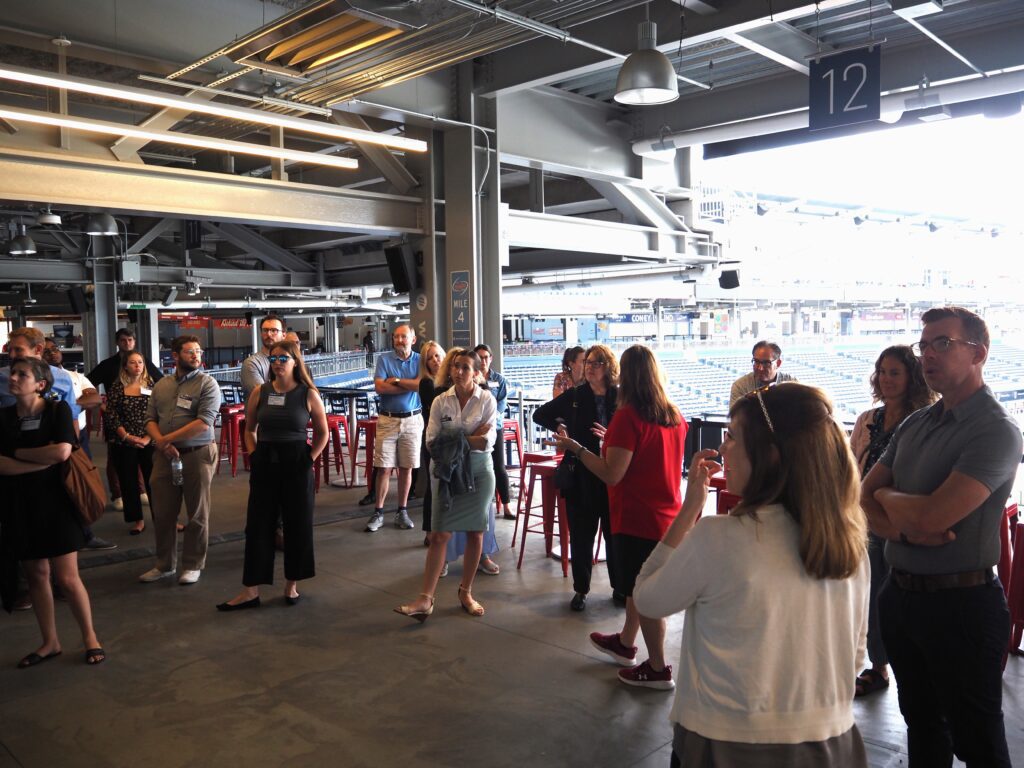
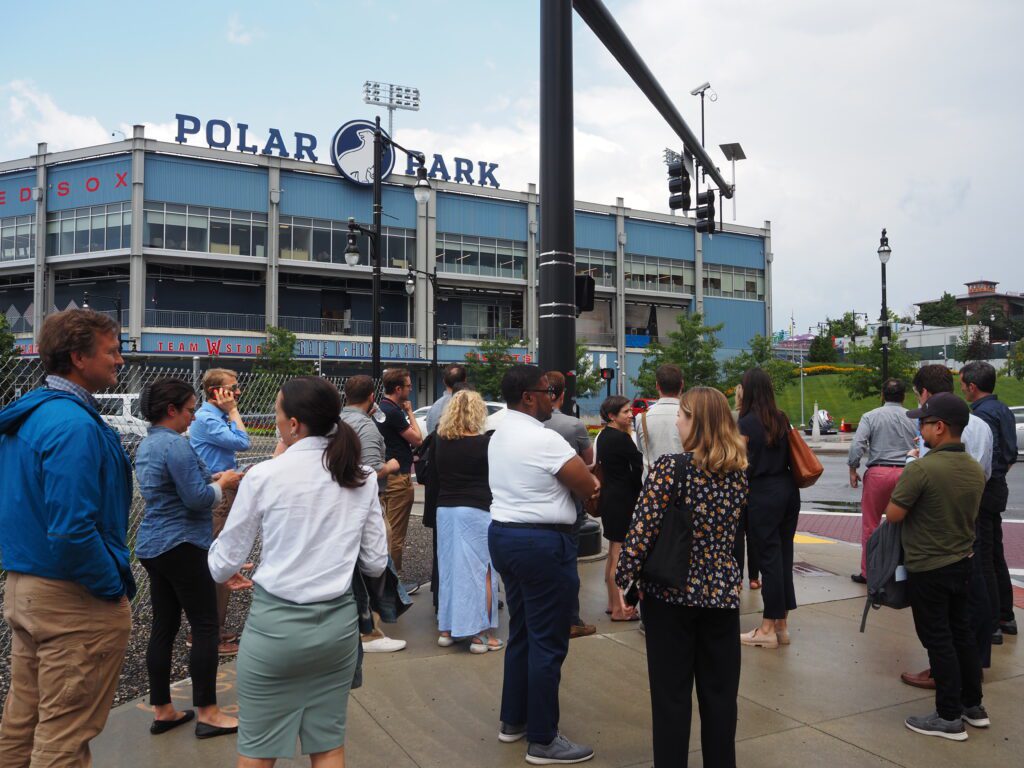
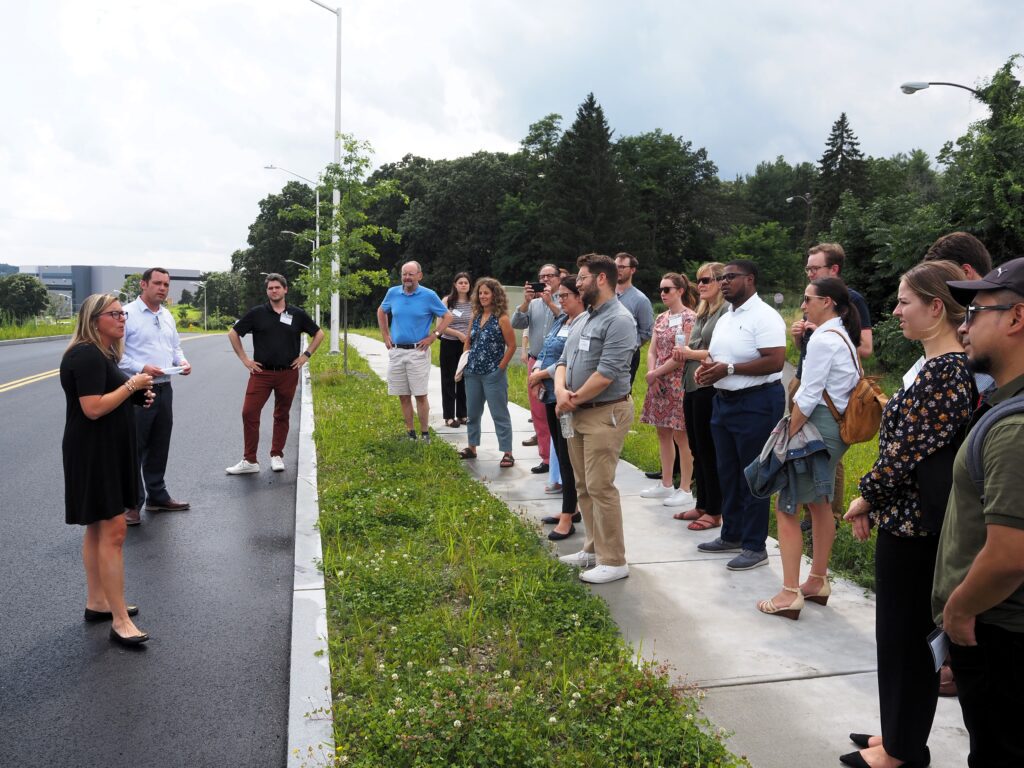
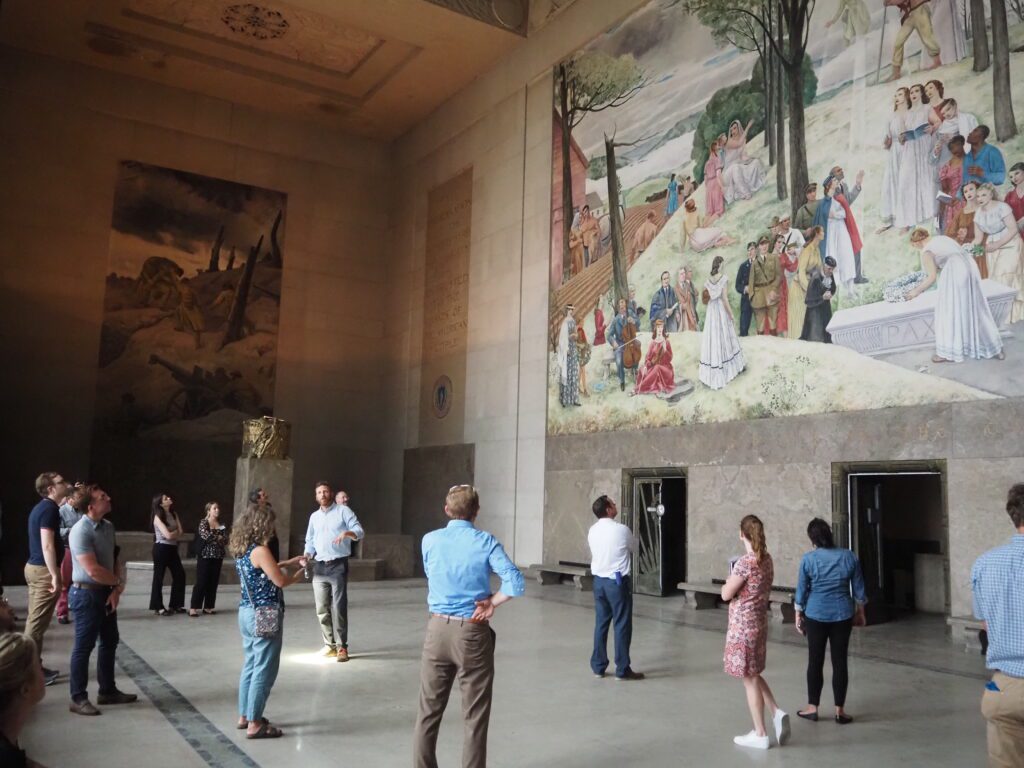
“While Worcester’s future is bright, it is vital to learn from our past and understand how our community has undergone such profound change, to ensure we overcome challenges ahead. We all can learn from this analysis and inform ongoing development strategies and decisions that impact our community’s future,” said Paul Matthews, the executive director and CEO of WRRB.
Panels provide deep dives on public problems
Raising the (amount of) roofs
A panel on housing discussed issues surrounding affordable housing and homelessness in several areas around the country.
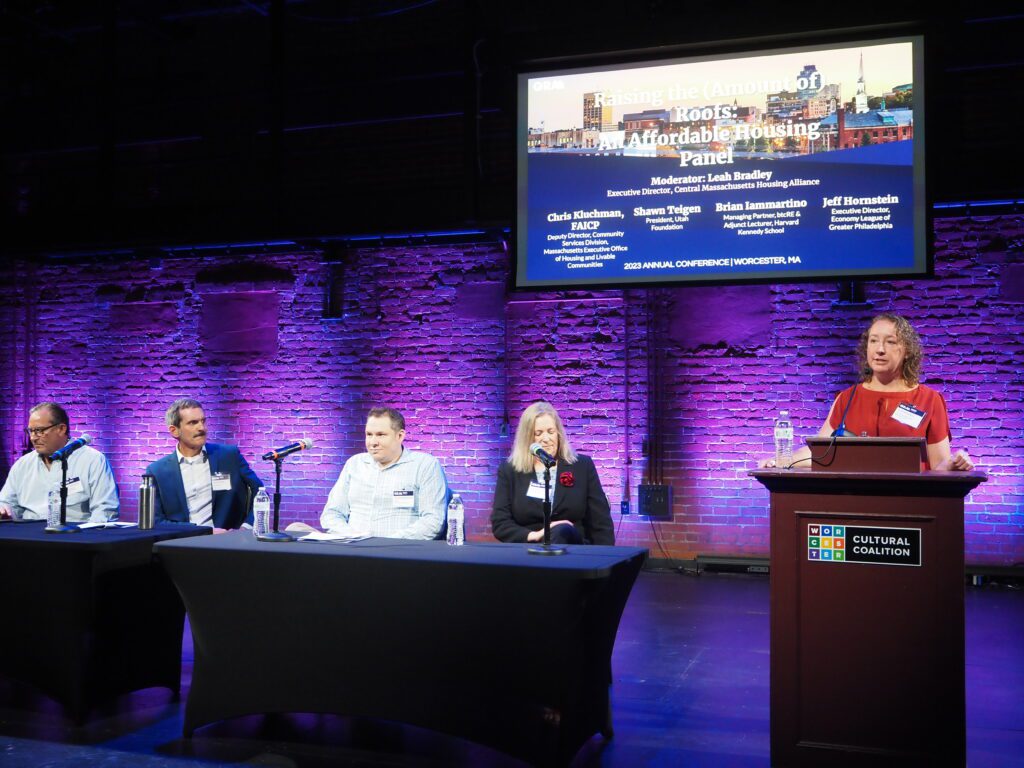
Massachusetts has experienced challenges, including a significant rise in homelessness in Worcester County, high housing costs, and extreme competition for affordable housing units. Zoning is also entirely locally controlled.
In Utah, survey results identified barriers to expanding low- and middle-income housing, including zoning and neighborhood opposition to multi-unit housing.
In Philadelphia, where 40% of homeowners are low-income, structural racism has a significant impact on the devaluation of property in neighborhoods of color, which then leads to other inequities.
The panelists also discussed policy solutions, including removing zoning barriers and changing zoning codes to allow for more development, providing technical assistance for affordable housing development, improving permitting processes, reducing construction costs, and using creative ways to build aesthetically pleasing multi-family homes.
Let’s keep it moving: Innovation in public transit
With federal COVID-19 relief funds coming to an end and lasting effects of the COVID-19 pandemic impacting ridership levels, transit agencies are facing significant challenges.
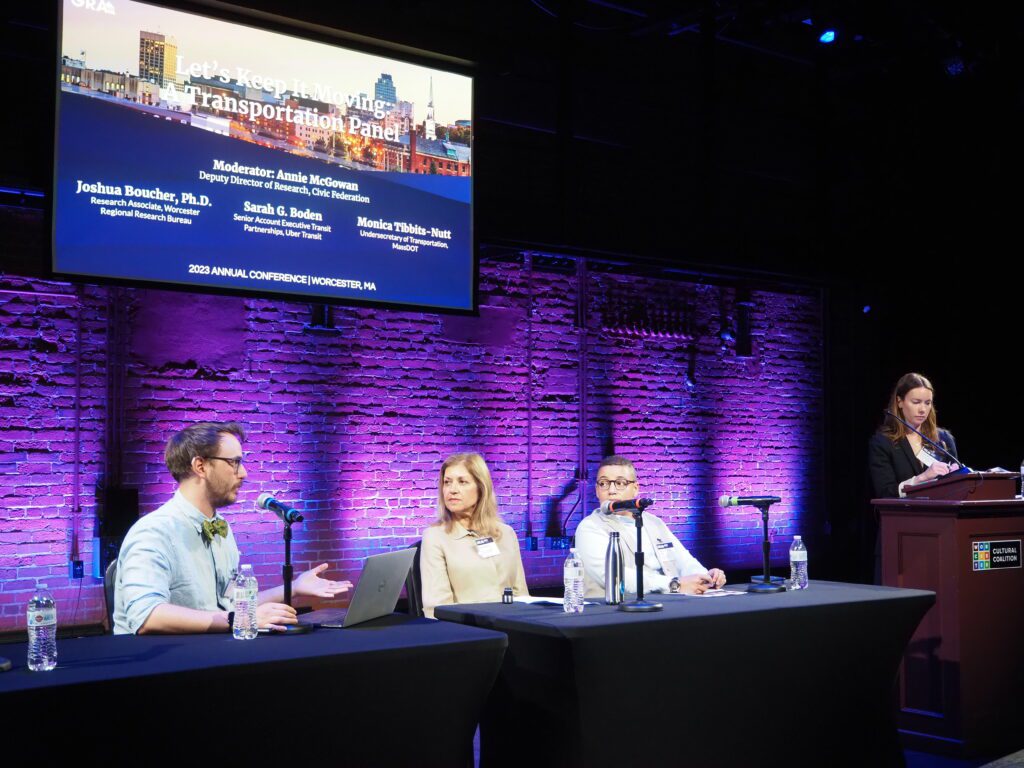
This transit panel encouraged thinking about innovative transit solutions that better serve riders, improve equity, and address climate change.
The discussion shined a spotlight on Worcester’s successful free public transit program, which has recently been extended another year into 2024. The free transit program has benefitted riders, who are generally low income, and has also led to a rebound in ridership.
The discussion explored the unique role Uber Transit can play in partnering with transit agencies to fill in transit gaps, especially during late night hours or in areas where transit is scarce, as a safe and cost-effective option.
The panelists also considered the budget challenges transit agencies face, especially when competing with other government services for the same scarce revenue sources. The conversation encouraged valuing transit like other critical government services such as education and backing transit plans with sufficient funding.
Education’s fiscal cliff following ESSER
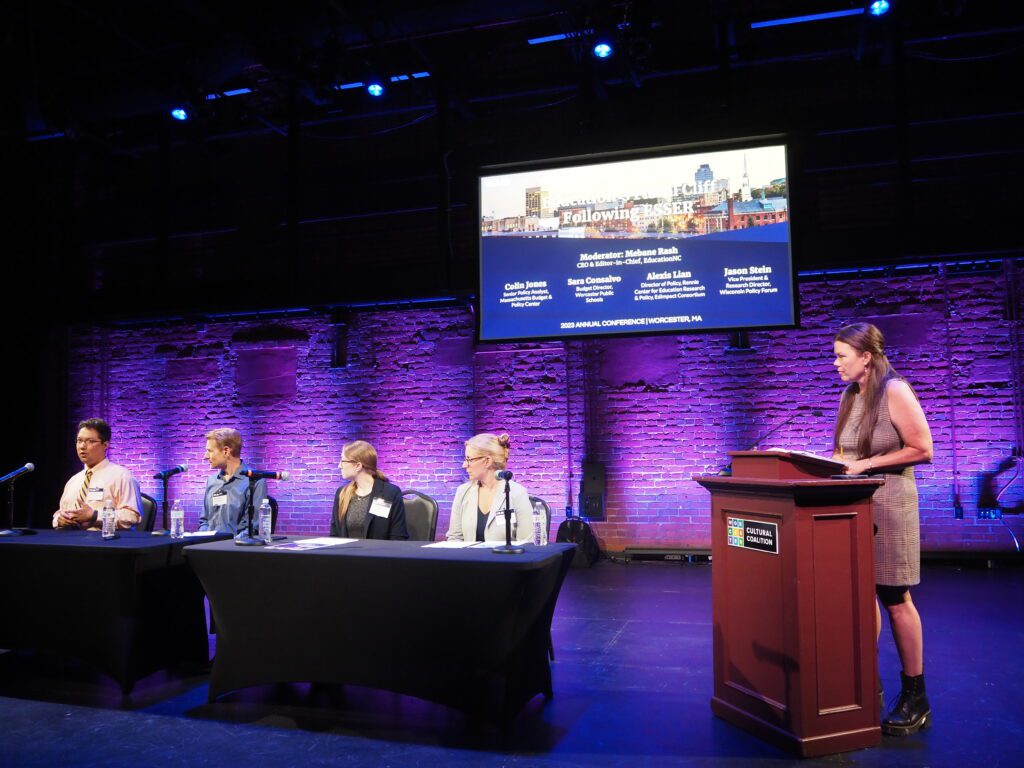
As school districts nationwide face a federal funding cliff, experts from EducationNC, the Wisconsin Policy Forum, the Massachusetts Budget & Policy Center, the Rennie Center for Education Research & Policy, and Worcester Public Schools shared best practices in this panel featured in The 74.
Equitable access to food
Casey Burns, director of the Coalition for a Healthy Greater Worcester and co-chair of the Mayor’s Taskforce on Food Security, presented on the issue of equitable access to food.
She encouraged thinking beyond the simple concept of food deserts, which often ignores underlying factors that impact people’s access to food.
The three key social drivers that impact food access are:
- a person’s financial resources,
- the amount of time someone has in the day to go grocery shopping and prepare food, and
- access to federal benefits.
She explained that there is a direct correlation between housing costs and food. Additionally, the extent to which someone has experienced cycles of oppression is a key determinant of access to food.
Her organization works on data-driven strategies to create equity-based programs and policies to respond to needs, fill gaps, and reduce barriers to SNAP benefits.
Tracking the American Rescue Plan Act Funds
This panel discussion centered on the effectiveness of the use of federal American Rescue Plan Act (ARPA) funds provided to state and local governments in response to COVID-19 and how the funds are being tracked. Much of the ARPA funding was used to replace revenue lost as a result of the pandemic’s economic disruption and to close budget gaps.
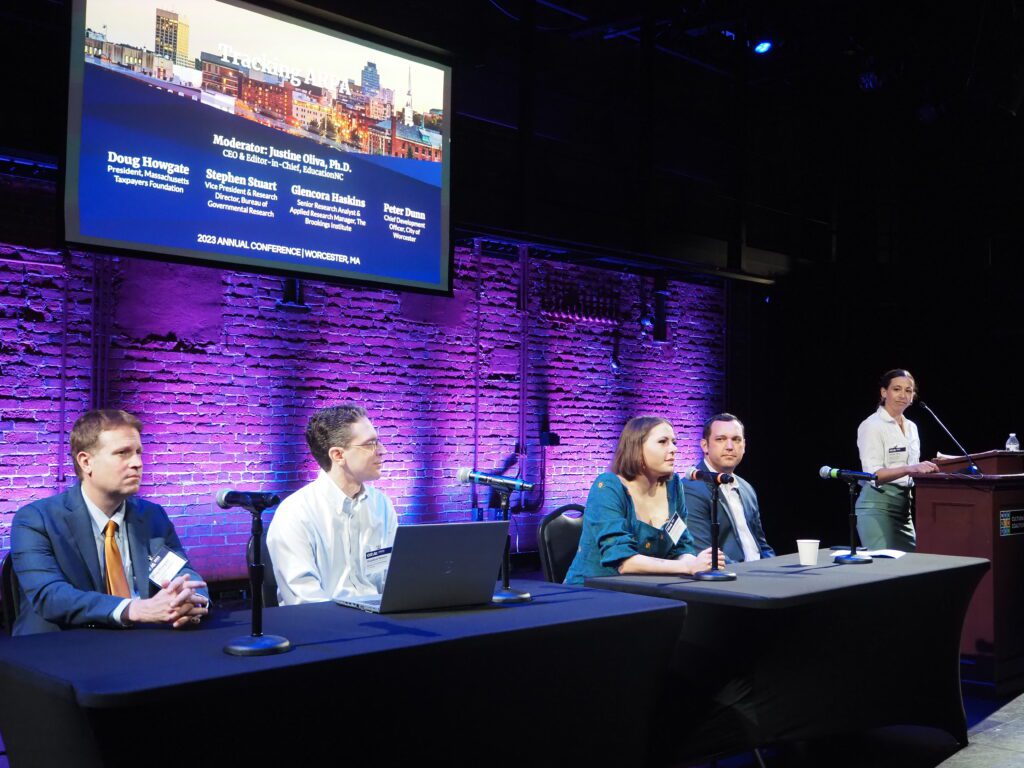
In New Orleans, the relief funds helped the city close budget gaps and increase fund balance. The city also has shifted to spending on recovery programs and priority projects. Online dashboards have been tracking the progress of their funds.
Worcester too has been able to track its ARPA funds with an online dashboard. The challenge for Worcester has not been the tracking of funds, but rather, the accountability requirements associated with carrying out federal guidelines for federal grants such as the Community Development Block Grant and Housing and Urban Development.
Brookings additionally has an ARPA tracker for local governments.
The question for many state and local governments after ARPA will be deciding which programs to continue and how to fund them going forward. States and municipalities will need to identify alternative revenue streams to continue staffing. Alternatively, in an effort to avoid setting up ongoing operations with unsustainable revenue sources, infrastructure is a good use of the one-time ARPA funds.
Public workforce shortage
Like other sectors, the public sector has struggled to return to pre-pandemic workforce levels due to difficulty recruiting young people into municipal jobs, a tight labor market, uncompetitive pay, and early retirements. This workforce shortage presents challenges, including delays or cuts to services and loss of institutional knowledge.
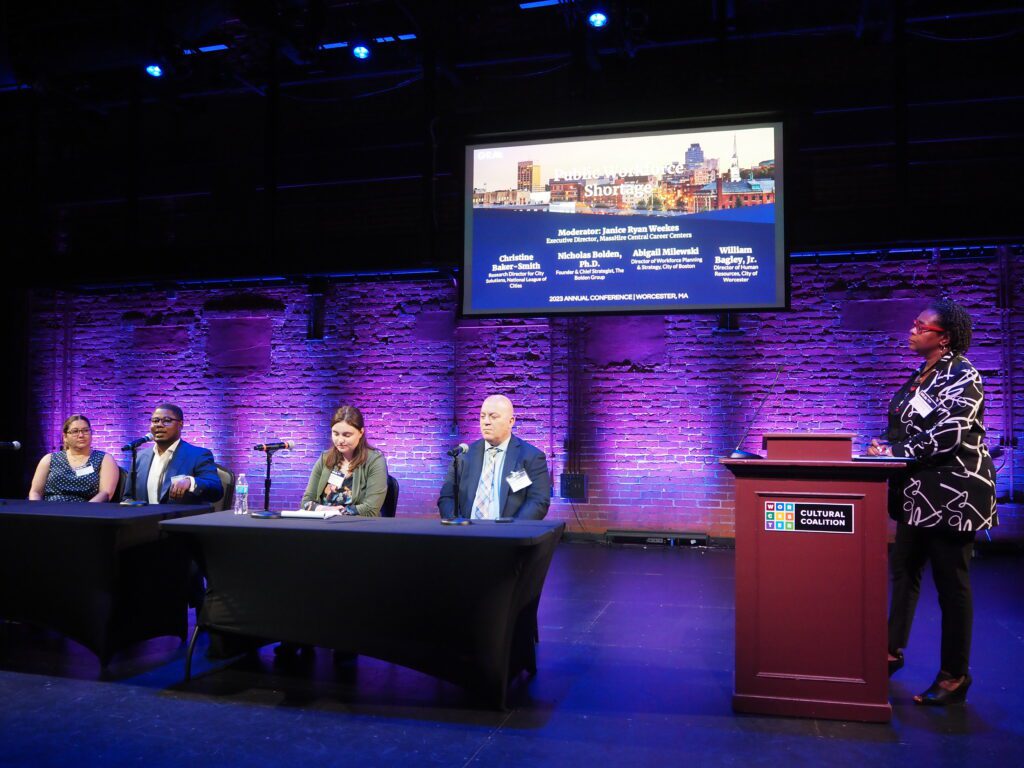
Benefits like public pension plans are no longer as appealing as they used to be, as compensation and flexibility have taken precedence.
Another challenge is an underrepresentation of Black, Indigenous, People of Color (BIPOC) populations in government, especially within police departments.
Solutions to these challenges as outlined by the panelists include retraining, offering incentives, taking advantage of federal funding programs, utilizing apprenticeship programs, allowing remote work, updating rigid and outdated job descriptions, and partnering with community organizations to help with recruiting for municipal jobs.
“Attending the GRA Conference is an investment that always pays off.
– Brian Straessle, The Sycamore Institute
There’s no better way to connect with and learn from peers across the country.”
Creating momentum for real change
Each year, across panels, practical skills sessions, meetings, field trips, and informal networking opportunities, the conference gives researchers a chance to reflect on whether we are actually creating momentum for real change, asking ourselves five questions:
Have we tested our assumptions about the nature of our problems?
Are we creating learning environments that are safe and challenging in our organizations and communities?
Are we building relationships that breed trust and collaboration?
Are we examining problems from a range of diverse and inclusive perspectives?
Are we using empirical data and creativity to cultivate and drive innovation?
— Arun S. Prabhakaran, president of the Urban Affairs Coalition
Annual awards honor the leadership of government researchers
GRA organizations conduct research on the most pressing issues facing our communities, yet their research is too often not lifted up and celebrated.
Shout out to all the 2023 award winners!
Frederick P. Gruenberg Award Honors Laurence Msall, “our human compass”
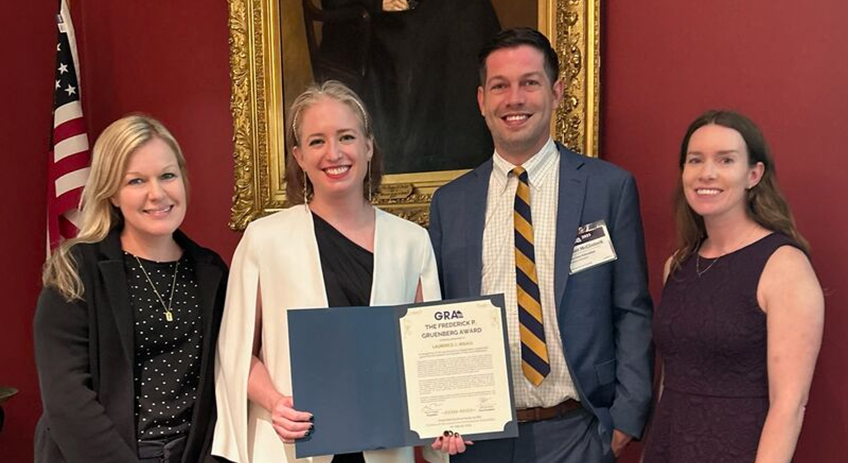
At the conference’s awards dinner, the GRA’s 2023 Frederick P. Gruenberg Award for lifetime achievement was awarded posthumously to the Civic Federation’s president, Laurence Msall, often referred to as a human compass.
The Frederick P. Gruenberg Award is the highest honor that the Governmental Research Association bestows on individuals who have made outstanding contributions to the field of governmental research during their careers.
Most Effective Education
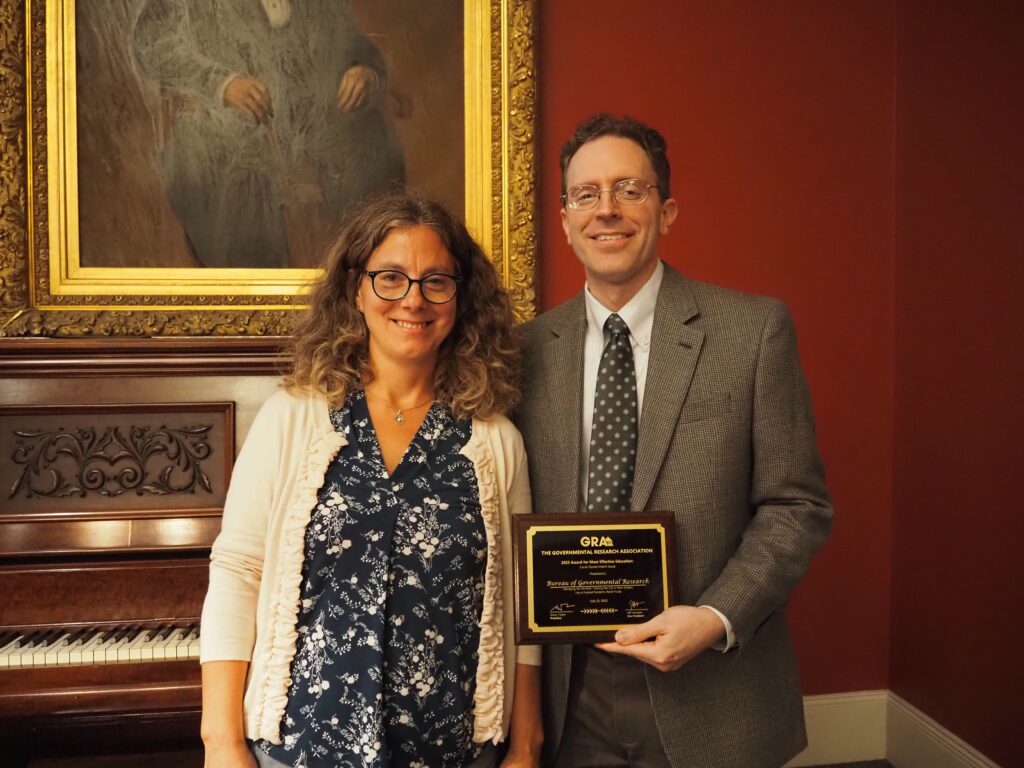
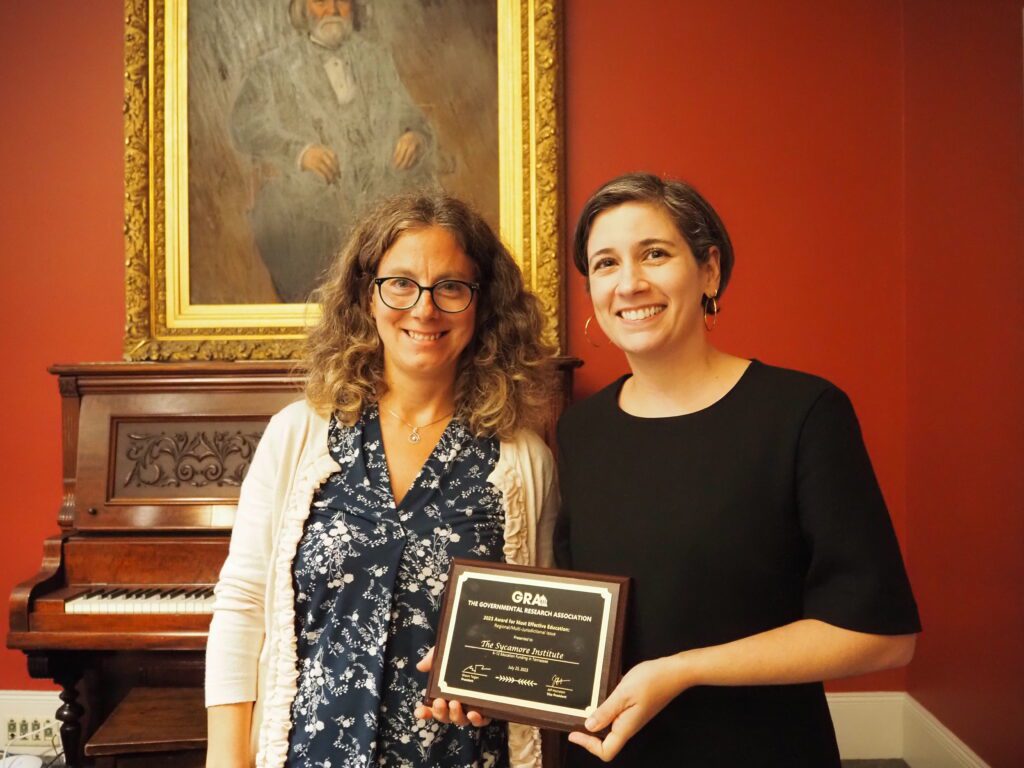
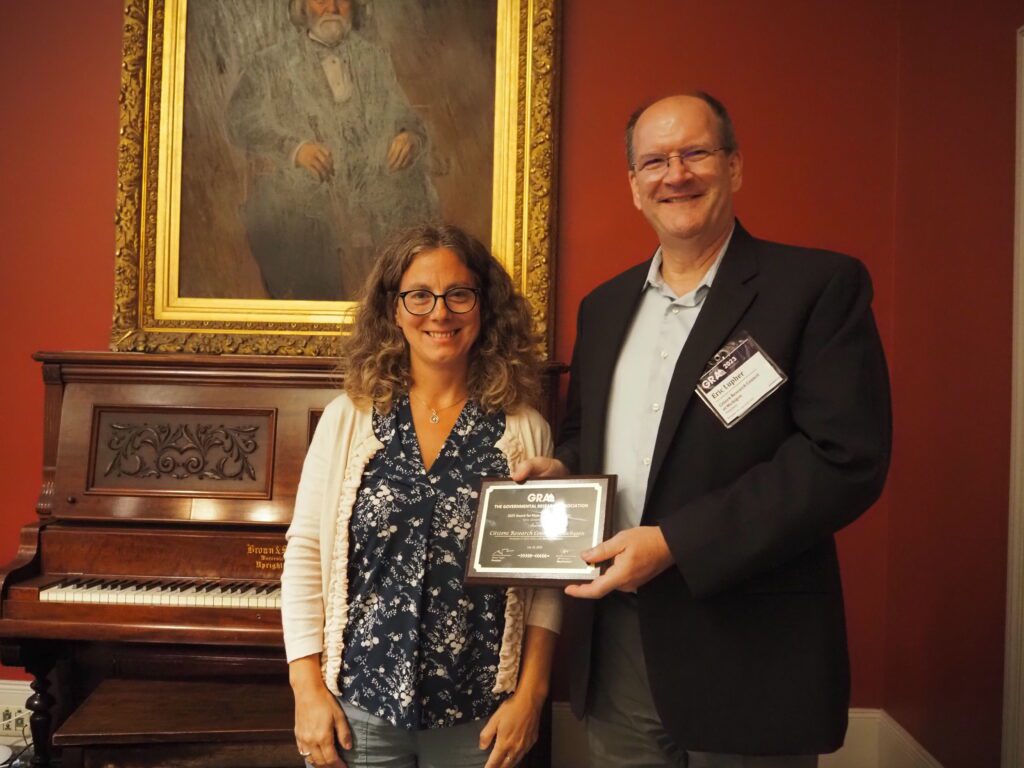
Best Digital Communications and Short-Form Writing
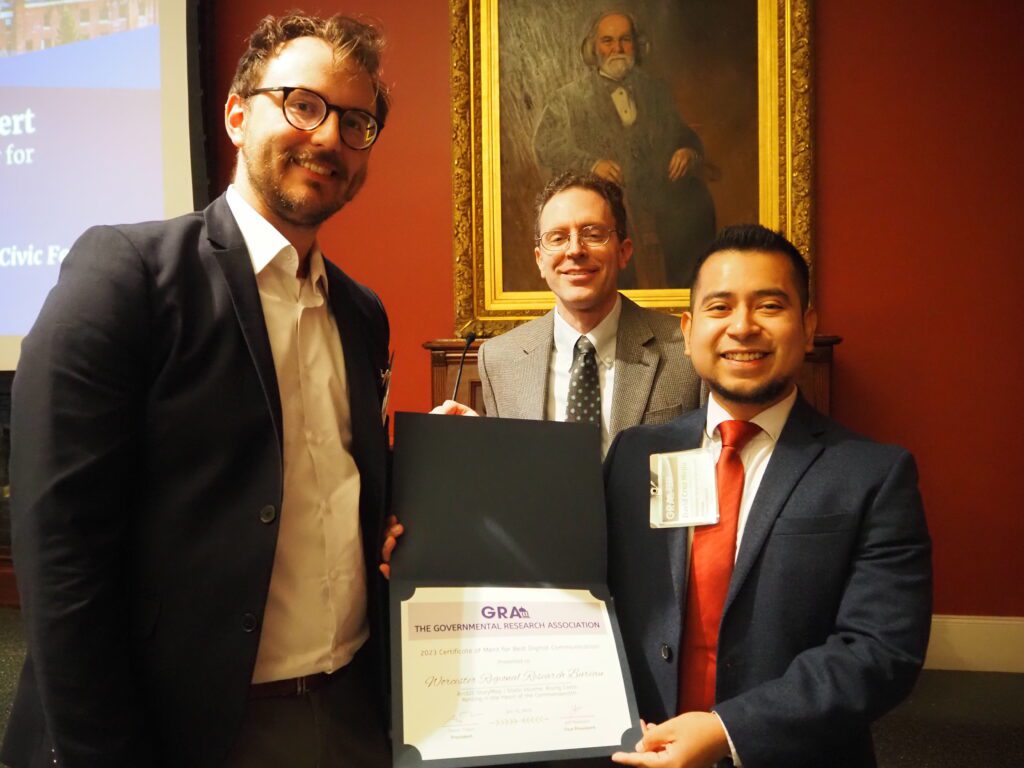
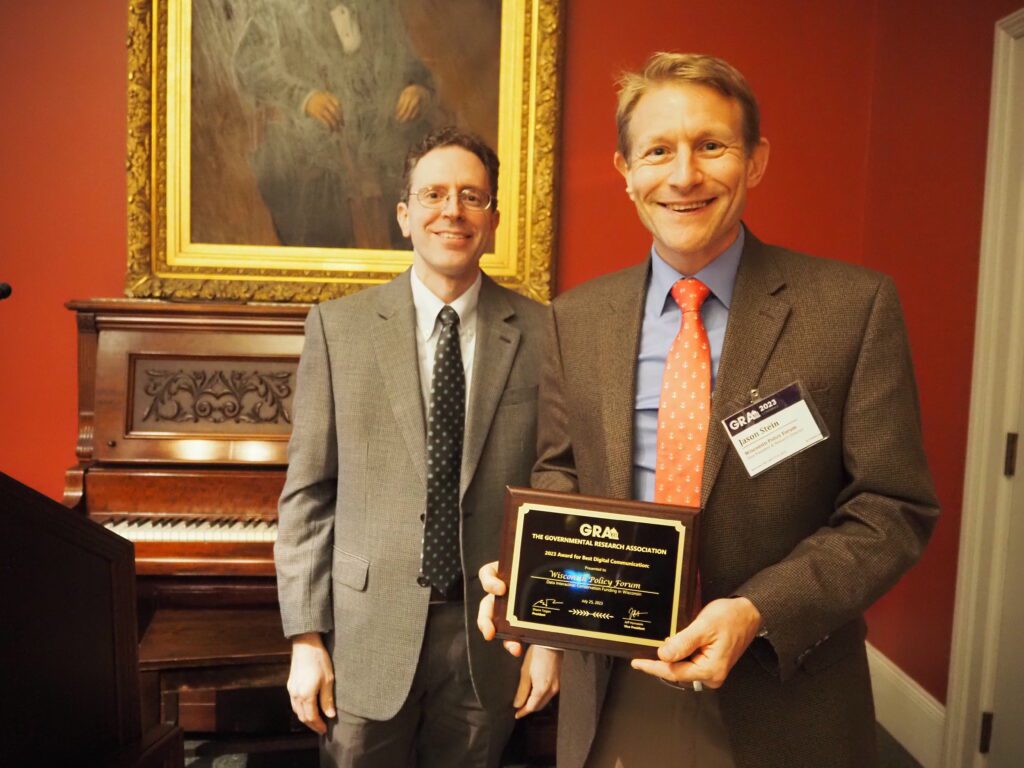
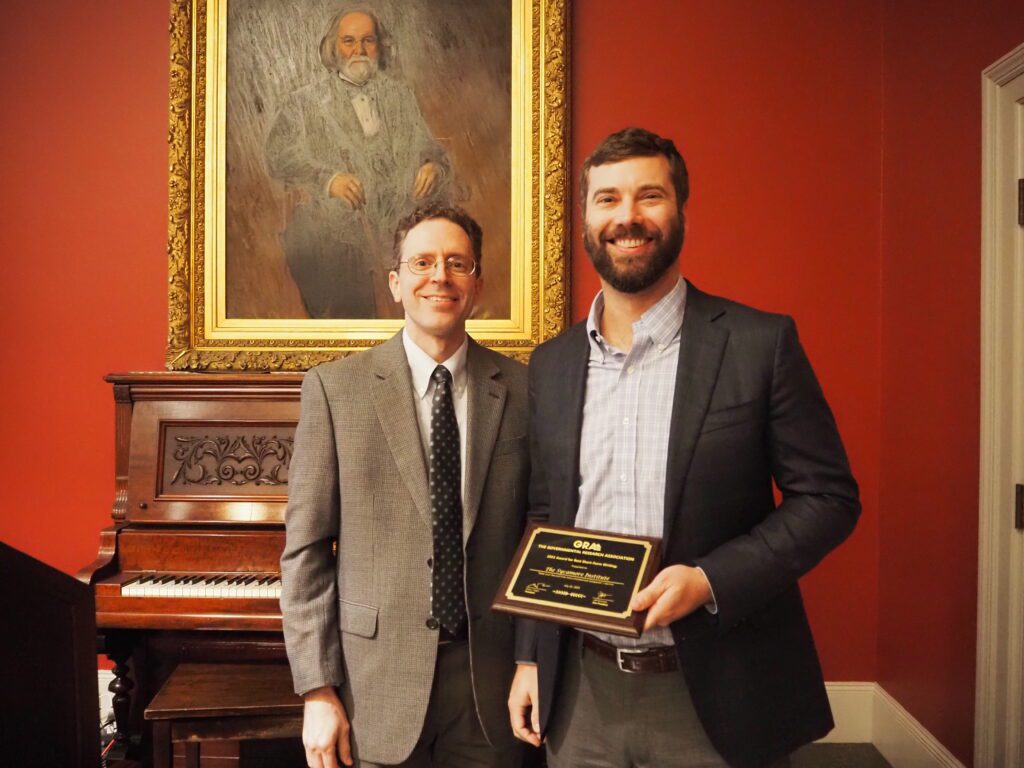
Most Outstanding Policy Achievement
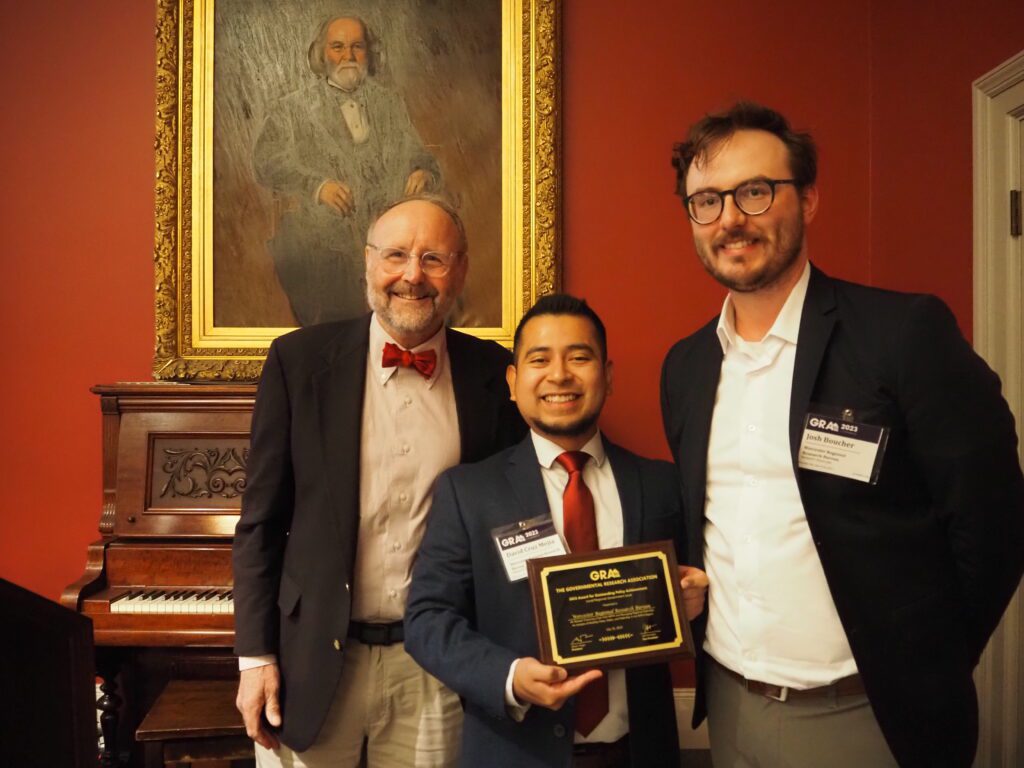
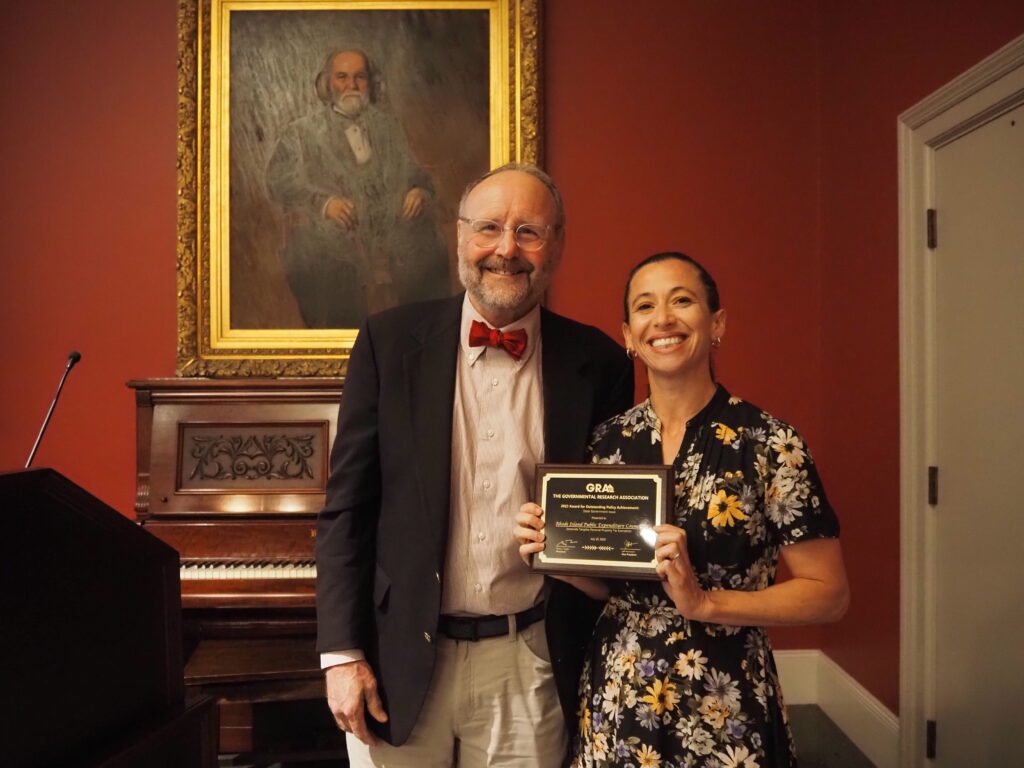
Most Distinguished Research
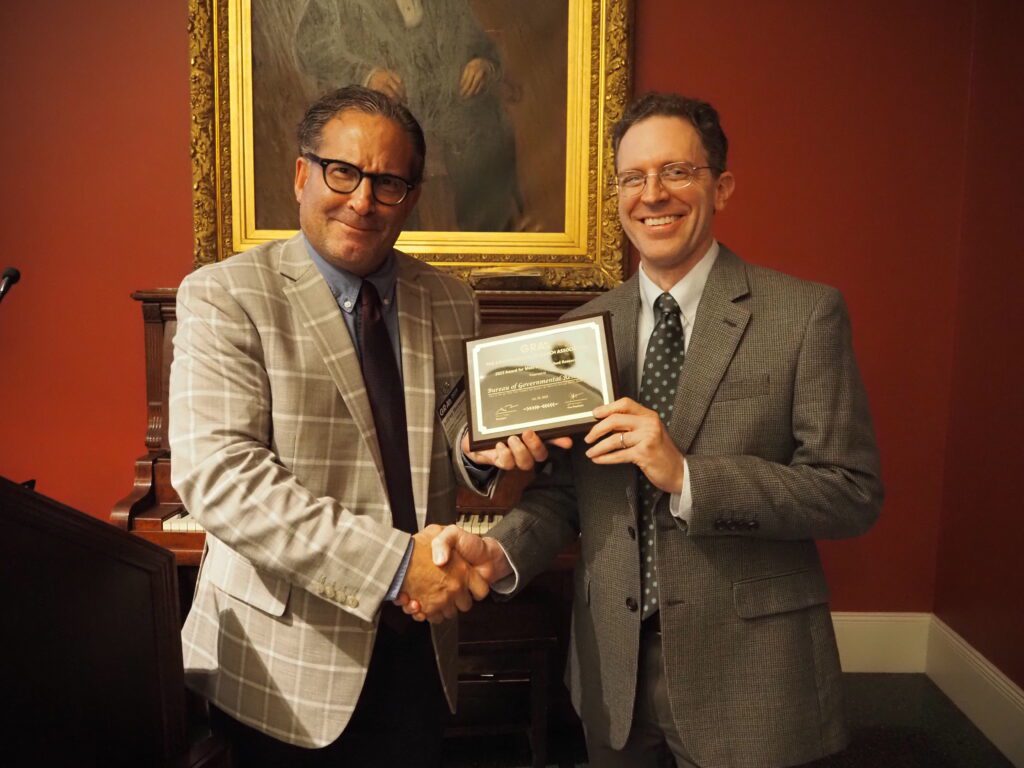
Join us in Western North Carolina in 2024
Thanks to the generous support of the Blumenthal Foundation, the presidents of GRA organizations will be invited to retreat at Wildacres in Little Switzerland from July 14-20, 2024.
EdNC will host the GRA’s annual conference in Asheville and Haywood County from July 21-24, 2024.
Save the date and join us!
Contact mrash@ednc.org about sponsorship opportunities at all levels.
Thank you for your support of these leaders who make meaning of our world.
Behind the Story
Thank you to the Worcester Regional Research Bureau for hosting the conference, photography, panel videos, and for providing commentary for this article.
Thank you to The Civic Federation for providing the panel recaps and the video tribute.



